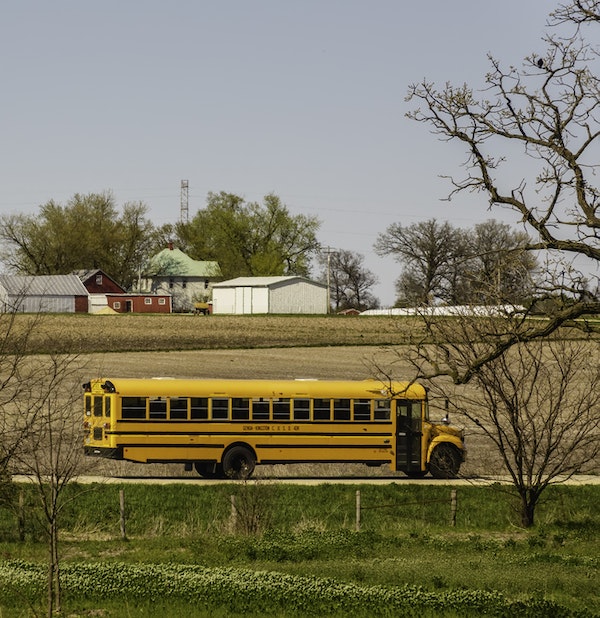This interview with 2022 Presidential Leadership Program Scholar Elisabeth Luevanos was originally published in The Catalyst: A Journal of Ideas from the Bush Institute.
Urban and suburban school districts garner most of America’s attention. Still, nearly 10 million students are enrolled in the nation’s rural schools. Their districts are building partnerships with colleges, developing curricula that address their students’ needs, and, importantly, opening students up to unforeseen possibilities.
Elisabeth Avila Luevanos is in her second year as superintendent of the Milano Independent School District in Central Texas. Her rural school system, which the Texas Education Agency recently rated as an A district, serves approximately 400 students from pre-kindergarten through high school. Luevanos, who holds undergraduate and graduate degrees from Baylor University, Texas A&M University, and Houston Baptist University, previously served schools in suburban and urban communities. The 2022 Presidential Leadership Scholar discusses the challenges her district faces, along with how they are meeting those tests, in this conversation with Eva Chiang, the Bush Institute’s Managing Director of Leadership and Programming; Peyton Webb, The Catalyst’s editorial assistant; and William McKenzie, Editor of The Catalyst. The interview below has been edited for length and clarity.
What kind of schools do rural students need to prepare them for adult lives filled with opportunity and purpose?
One, there needs to be a focus on student needs and resources. And rural schools need staff that look at their students’ potential as opposed to the lack of resources and shortage of highly qualified individuals to educate them.
There is generational poverty in rural communities, which means many individuals come from families in which no one graduated from high school or pursued a post-secondary education. Pursuing some form of college or a certification isn’t necessarily a high need or focus because the mindset is on working on local farms and ranches with the knowledge students already possess. Getting rural students to see their potential and gifts is a priority for districts like ours.
Poverty here is more dire, too, than in an urban or suburban district. Many students in rural communities feel a sense of destitution and hopelessness, that they don’t need education to succeed in life.
They need individuals who will look at their special skill set and knowledge, and then create a system that allows each student to succeed academically. That way, they can break the generational poverty cycle and change the trajectory of their family’s earning potential.
To make this happen, schools need academic programs that ensure students are ready for a job and career when they leave our school doors. They don’t need to graduate with a piece of paper that means nothing or that means they must get another trade or skill set beyond high school. Schools need to identify our kids’ great knowledge and have a mindset that all students can succeed.
Many of our students have different learning styles. As in any school district, we need to identify those styles and provide differentiated instruction. That will help us meet each student’s needs.
I had a student who graduated second-to-last in his class and had an extremely low GPA. He thought he was incapable of any post-secondary academic endeavor because of his grades and perceived lack of intelligence. But he had this very mechanical mind, could process things verbally, and could learn visually. He could break apart an engine, weld anything, and create anything he put his hands on. I always told him, “You’re much smarter than me. I do not have that technical mindset to tear apart an engine and put it back together.”
We talked often about his potential and finding a program for him. We were able to get him enrolled in the Texas State Technical College’s diesel mechanic certification program. He persevered, has a 4.0 GPA, and will graduate next semester. He’s going to make more money than he ever dreamed about. With his strong work ethic, he will exemplify diligence and perseverance within his community.
I have many more stories of students who need similar guidance and partnerships with school officials. Students need individuals who believe impossible things for them and provide them with resources and programs so they are successful. I always tell students, “I want you to be more successful than me.”
In short, rural districts need educators who can inspire, motivate, and believe the impossible for each student. Otherwise, we will never help our students find their true meaning or purpose and make a difference in their lives.

